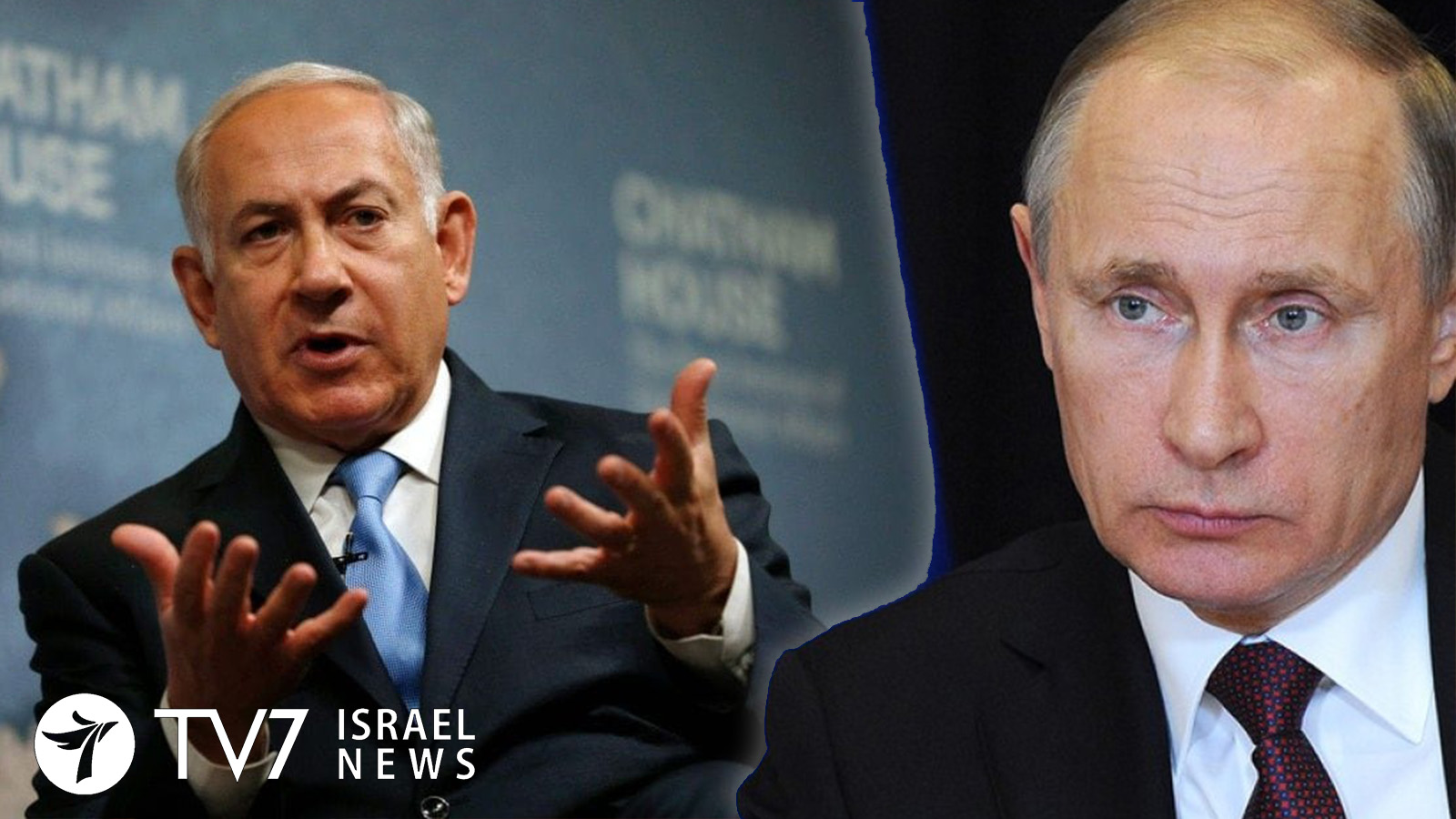Prime Minister Benjamin Netanyahu did not travel to Moscow today for his pre-scheduled meeting with President Vladimir Putin, despite the Israeli’s leader’s assertion last week, in which he emphasized the importance of the meeting with the Russian leader to Israel’s national security. A senior Israeli official, who spoke to TV7 on condition of anonymity, said that “Both sides have agreed that the meeting scheduled for today, between Prime Minister Benjamin Netanyahu and President Vladimir Putin, will be postponed for several days.” The official noted, however, that “The two (leaders) held a phone call this morning and (that) a new date for the meeting will be determined as soon as possible.”
The work meeting between Netanyahu and Putin—which was supposed to be the first since Syrian-air-defenses shot down a Russian plane during an Israeli operation against Iranian targets in Syria—was meant to have been about bolstering the presiding coordinated-mechanism between the Russian and Israeli militaries, which aims to assure deconfliction during Israeli military engagements in its northern neighbor, Syria. All of the preparations for the meeting had already been completed. A delegation from Israel’s National Security Council had already travelled to Moscow ahead of the Prime Minister’s arrival, to coordinate the details; the Prime Minister’s Bureau had already chartered a plane, and everyone was waiting for the departure, which was scheduled for today. But yesterday, the decision to postpone the meeting was made. When TV7 asked the senior Israeli official about the reason for postponing the meeting, which Prime Minister Netanyahu insisted last week ‘aimed to discuss issues of the upmost importance,’ the official refused to elaborate. Nevertheless, Russian Deputy Foreign Minister Mikhail Bogdanov revealed that it was Netanyahu who had asked to postpone the trip due to political developments in Israel. The Russian diplomat said that “The prime minister needs to be in Israel at the current juncture in time to solve several problems that are related to the (nearing Israeli) elections.”
According to reports that were confirmed to TV7 by several Israeli politicians, Prime Minister Benjamin Netanyahu is preoccupied at this moment with significant developments in the country’s political arena. The Prime Minister’s main rival, former IDF Chief of Staff Benny Gantz who heads the Israeli Resilience party, announced this morning that he had signed an agreement with Chairman of the Yash Atid Faction, Former Finance Minister Yair Lapid, in which both leaders will run together in the upcoming 9th of April parliamentary elections. According to their agreement, both Gantz and Lapid will serve – if elected – as Israel’s Prime Minister for a rotation term of two years each; a move that polls predict, will allow them – if election was held today – to surpass Prime Minister Netanyahu and his long-time ruling Likud party. Furthermore, the move convinced another former IDF Chief of Staff, Gaby Ashkenazi, to join forces with Gantz and Lapid – making him the third former military chief to join the political centrist-union. That is why, reports of several other agreements by smaller alt-right wing factions have been made, to secure a parliamentary majority of potential allies for Netanyahu’s political-bloc after the elections.
It is important to note that while in previous elections Prime Minister Benjamin Netanyahu was viewed by the Israeli public as the most experienced man in politics on matters of Defense and Security, providing him a significant edge on his political rivals; The new centrist union, under the leadership of three former IDF chiefs of staff – two of whom were considered very popular within Israel’s society – poses a significant challenge to Netanyahu’s so-called image of “Mr. Security.” That is why, his main rival, Lieutenant General in Reserve Benny Gantz has time and again emphasized, in messages clearly directed to the Israeli public, that he too will assure Israel’s security in the face of Iran’s aggressive aspirations toward the Jewish State and the region. “I’m standing shoulder-to-shoulder with Prime Minister Netanyahu in the fight against Iran’s aggression. I’m certain that he (Netanyahu) will do the same when I hopefully become the prime minister of Israel.” / “President Rouhani, on my watch there will be no Chamberlain Munich agreement with your vicious regime. On my watch, there will be no appeasement. On my watch, Iran will not threaten Israel by taking over Syria, Lebanon, or the Gaza strip. Nor will it undermine pragmatic regime in the Middle East. On my watch, Iran will not have nuclear weapons,” Lt. Gen. (Res) Benny Gantz, Khosen L’israel party Chairman.
